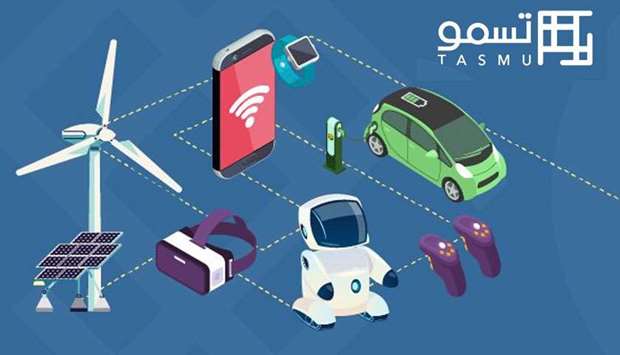The Ministry of Transport and Communications continues to strive towards establishing a smart transport system, as part of the implementation of Tasmu Smart Qatar Program.
The programme aims to lower road fatalities to 6 per 100,000 people, in addition to lowering car emissions by 10% among other goals. The ministry said in a report it issued on Sunday that Qatar acknowledges the importance of having a modern transportation infrastructure in economic and industrial development, particularly in light of the high population growth and economic expansion.
The report pointed out that the ministry's work is part of the effort to transform the country into a knowledge-based digital economy. The contribution of the transportation sector to GDP in 2017 was around QR17.2bn, up from QR10.6bn in 2013. The state allocated 7.9% of its 2019 budget expenditure to transportation and communication. That is in addition to the QR1bn allocated this year to the expansion of Hamad International Airport, a QR10bn project. Moreover, QR3bn has been allocated to the public transport programme until 20021. The state will also increase highways to 8,500km.
The ministry is working on five main projects related to public transport, they are electric buses, establishing 17 public transport infrastructure sites, 3,000 smart bus stops, developing the West Bay bus centre, water taxis and improved public transport buses. There are other projects that include using Wi-Fi on street lighting poles.
Also, the Ministry of Transport and Communications has implemented in cooperation with Qatar Rail and Karwa a plan to integrate different public transport means such as Metrolink and Metroexpress.
In aerial transport, Hamad International Airport launched phase two of its smart airport programme, which uses facial recognition capabilities. The smart airport plan contributes to the improvement of the operational processes and provides optimal use of the airport's resources and facilities. It also provides the required information when making decisions regarding the future capacity of the passenger terminal and the flow of passengers, with the state targeting 53mn passengers a year by 2022.
In maritime transport, Hamad Port began operations in 2016, before its official inauguration in September 2017. It links 50 ports regionally and internationally in three continents. The ministry is overseeing the second phase of the port, which will be fully automatic. Phase two is set to be completed in 2021. Doha Port for its part is undergoing a development process worth $550mn.
The next Qatar IT Conference and Exhibition (QITCOM 2019), which will take place from October 20 to November 4, will see the Ministry review its latest developments in the fields of transportation. QITCOM will have more than 90 speakers. A total of 300 companies will participate in the exhibition, 100 of which are startups.

